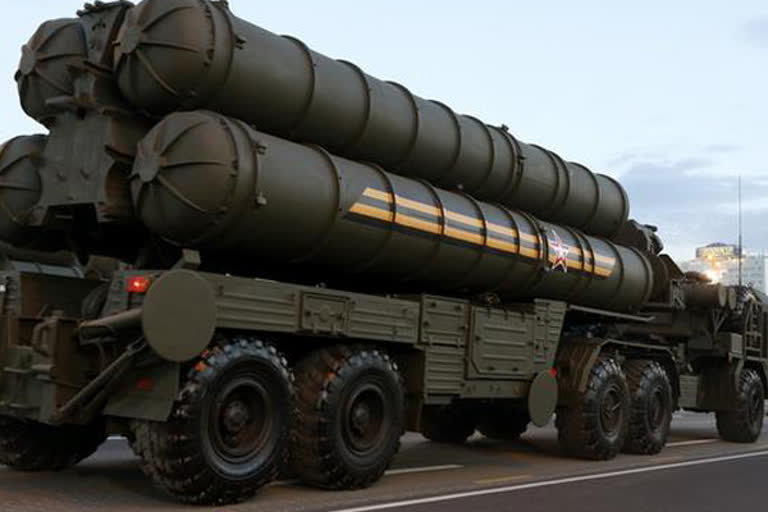New Delhi: A symbol of enduring India-Russia cordiality and a bone of contention in India-US ties, the powerful S-400 Triumf air defence missile systems will be in India before the end of the year.
Also belying indications of a hiccup in India-Russia ties and pointing out that the India-Russia military contract was being implemented in accordance with a fixed timeline, India’s Ambassador to Russia Bala Venkatesh Varma said during a briefing in Moscow on Thursday that the first regiment set will arrive in India by the end of the year, a Russian news agency reported.
Bought from Russia at a cost of Rs 40,000 crore or about $5.4 billion, the S-400 surface-to-air medium and long-range anti-aircraft missile system is a ‘one-size-fits-all’ game-changing weapon. It is capable of countering a complete range of airborne threats including bombers, stealth fighters, missiles and drones at a range of up to 400 km and up to 30 km altitude and a capacity to engage up to 36 targets at one time.
READ: NASA’s Odyssey Orbiter Marks 20 Historic Years of Mapping Mars
Sought by India in 2015 and inked during Russian President Vladimir Putin’s visit to India in October 2018, the India-Russia deal is for delivery of five regiment sets.
Historically, India and Russia have been very close militarily with more than 60 percent of India’s defence equipment being of Russian origin.
Buying the S-400 from Russia would attract provisions of the US’ 2017-legislated Countering America's Adversaries Through Sanctions Act (CAATSA) that seeks to impose sanctions on Russia, Iran, and North Korea.
READ: NASA's Mars Perseverance Rover Safely Lands on Red Planet
Former President Donald Trump had imposed secondary sanctions on China and Turkey for importing and installing the S-400. Sanctions on Turkey had shaken the core of NATO as Turkey is considered a key NATO ally.
The Joe Biden government is understood to be contemplating whether a CAATSA waiver be granted to India for buying the S-400 and the issue has inevitably been discussed in most India-US high-level military meetings including during the March 2021 visit of Lloyd Austin, US Defence Secretary, to India.



